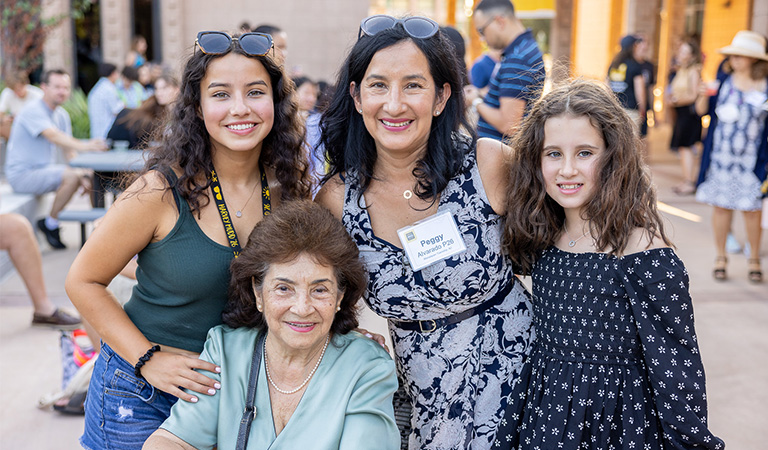Families’ Guide to Career Development

One of the most valuable things a family member can do to assist their student with the career planning process is to listen and maintain an open mind to often unclear ideas.
Career development and planning can be stressful. It requires family members to be patient, empathetic and understanding, even if you don’t agree with their thought processes, comments, ideas, or decisions.
Below is a list of things you can do to help your student get focused.
Encourage a Visit to Career Services
Often the spring semester of the first year is the best time to encourage a visit to the Office of Career Services since the transition to campus life takes time.
Please reassure your student that career services is for all students and majors and while meeting with a career counselor can take place at any point in their college education, the earlier the better! In fact, what is valuable about an early career conversation is planning out what your student can take advantage of during his/her time at Harvey Mudd.
Suggest Resume, Cover Letter and LinkedIn Assistance
A resume is one of the critical “tools” for every student. The earlier your student puts one together the better.
Resume and cover letter examples are available online in the Job and Internship Search Guide (PDF). The staff is here to coach students through this process.
Please suggest that your student have at least one other person review their resume and cover letter before submission. More recruiters are using social media to search for top talent; therefore, talk to your student about joining the Harvey Mudd College Alumni Association LinkedIn group. We’re here to help with their profiles as well.
Encourage Future Career Reflection
Many Harvey Mudd students come to the College already knowing their major and what they want to do after graduation. However, if they aren’t clear, please recommend that they meet with a career counselor to discuss options. A career decision should be an ongoing process and not a one-time, last-minute choice.
Emphasize the Value of Internships and Volunteer Experiences
Relevant work and volunteer experiences can be critical to finding employment in today’s job market, so internships are key. An internship provides a “laboratory setting” for your student to determine what they want to do (or not do), are good at (or is not good at), likes (or dislike)—all of which are important.
Employers are interested in employees who have:
- Strong oral and written communication skills
- Critical thinking and problem solving skills
- The ability to work in teams
- Project management skills
- The ability to take initiative and follow through
- The ability to utilize technology effectively
While they develop many of these skills through their academic work at Harvey Mudd, internships also allow employers to see how an individual functions in the workplace.
Suggest Extracurricular Involvement
Potential employers and graduate programs look favorable on involvement in college outside of the classroom. Interpersonal and leadership skills can be developed through:
- Participation in dorm leadership and student government
- On-campus work
- Becoming a proctor or mentor
- Committing to community service
Expose Your Student to the World of Work
Encourage your student to participate in the programs like “MUDD on the Road” to see first-hand how and where business is done. Also, suggest that they attend our Beyond the Bubble: Life After Harvey Mudd College seminars that are conducted by alumni and employers who talk about their industry as well as information session offered by our employers that come to campus to recruit.
Teach the Value of Networking
It is known that the most effective way to find employment is through networking—talking with people who are in the workplace or are affiliated with the workplace in which you are interested. Have them stop by to discuss how to effectively make connections. Help your student identify their natural networks (friends/family) and also encourage them to access the network offered by Harvey Mudd College.